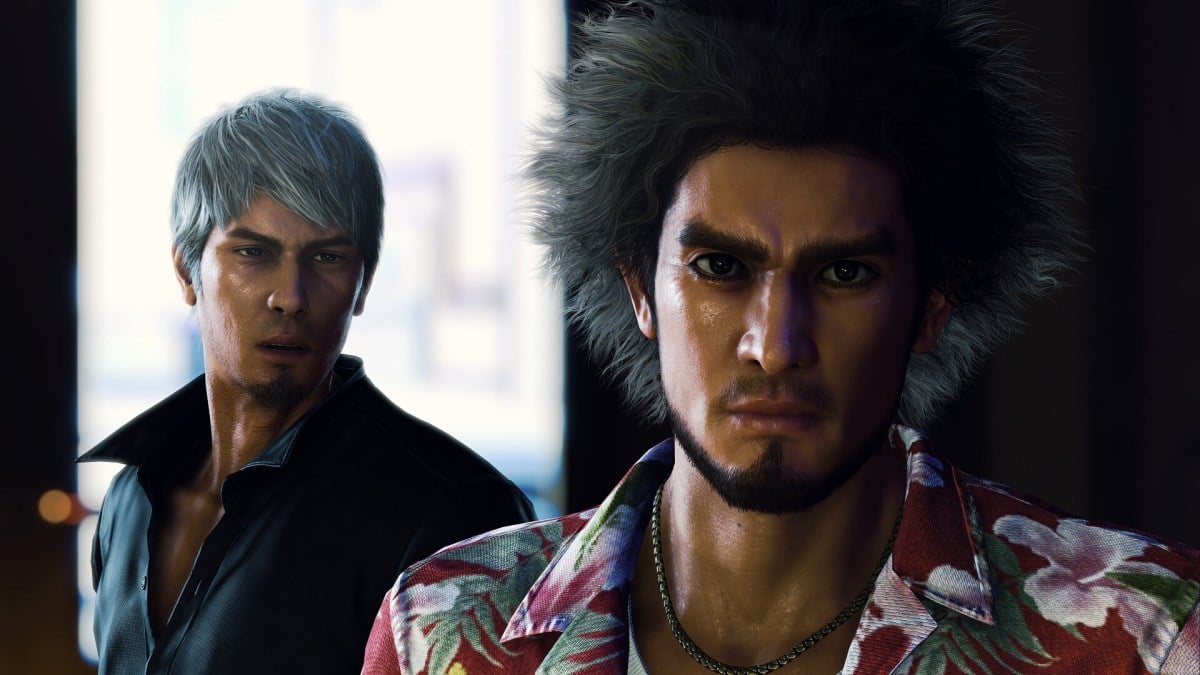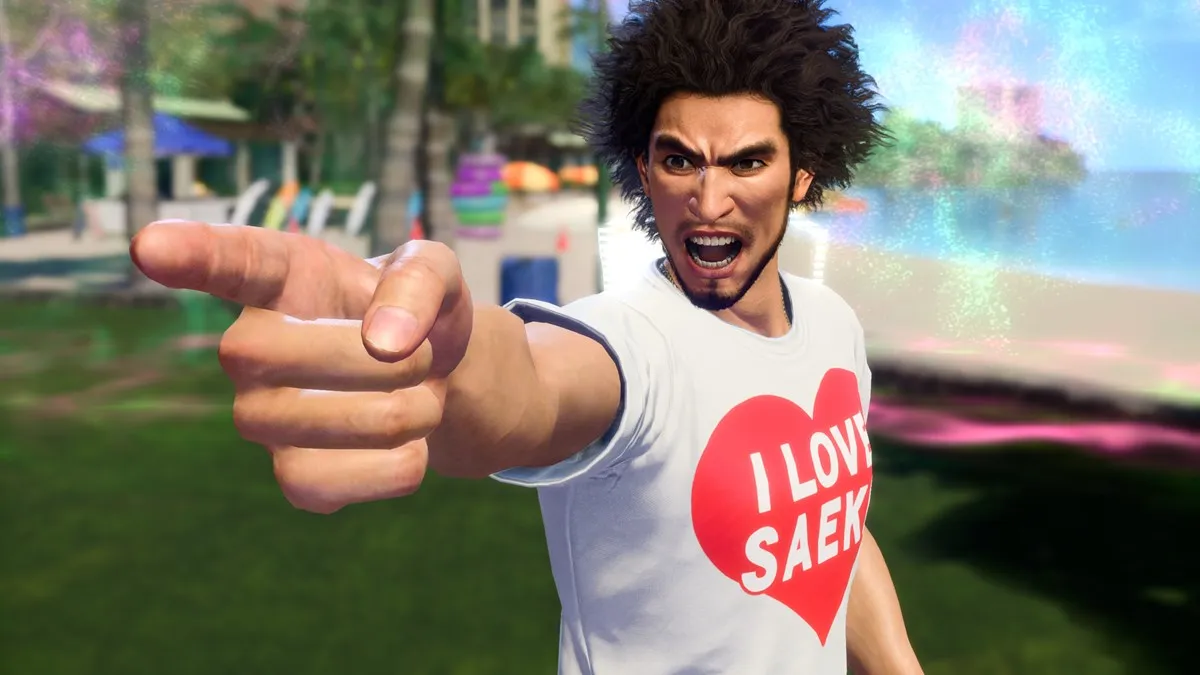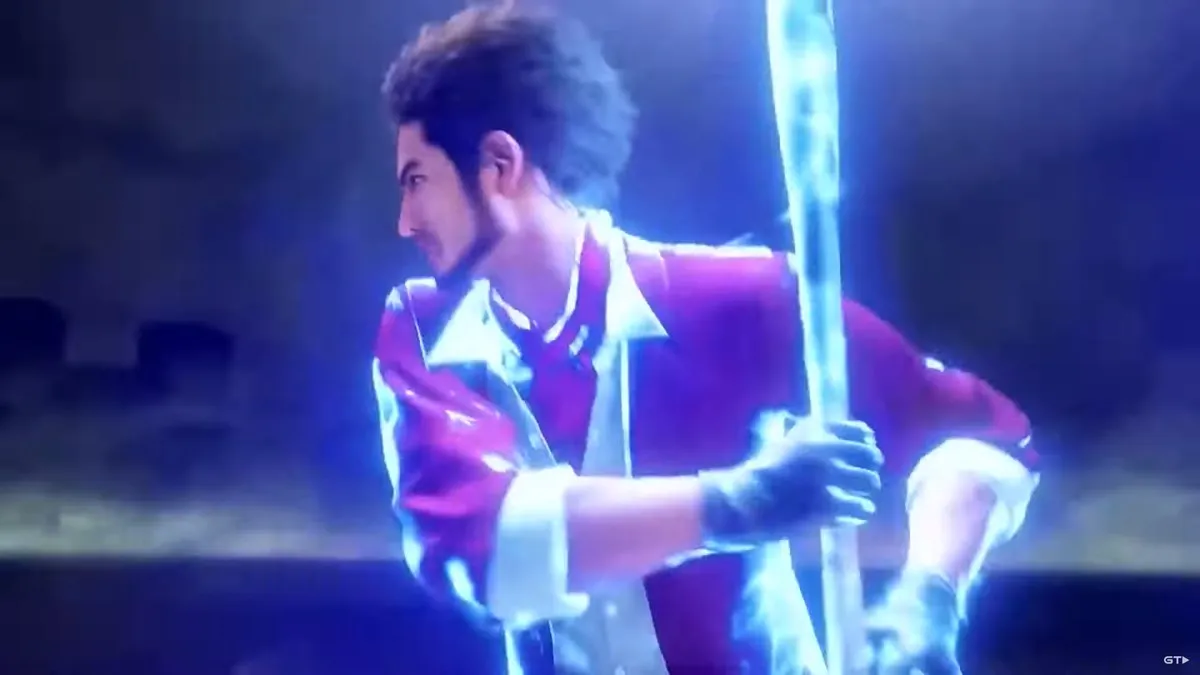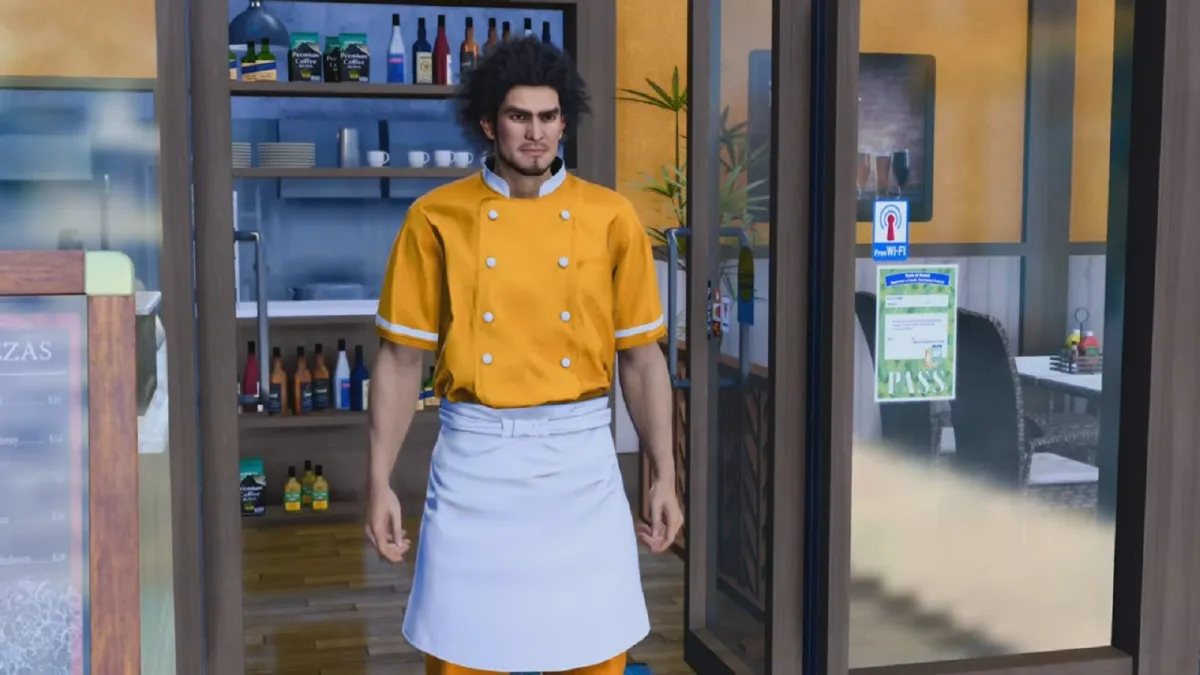The story of Like a Dragon: Infinite Wealth doesn’t truly begin until you wake up naked on a foreign beach with no memory of how you got there. Some people thrive most when they’re at their lowest, and Like a Dragon (formerly Yakuza)’s poster boy, Ichiban Kasuga, manages to make rock bottom look good. You can’t help but root for him as he picks himself back up again and again, and it’s that very same boundless optimism and golden-retriever charisma that keeps allies and players alike invested.
On the surface, throwing Ichiban into a larger-than-life vacation on the sandy shores of Hawaii is an easy sell for most people who enjoyed Yakuza: Like a Dragon, but it’s what’s below the surface that makes Infinite Wealth truly special.
Tourism with a twist

After the explosive events of his first outing (which are mercifully recapped for beginning players), Ichiban has been enjoying something rarely glimpsed in the LaD games: normalcy. His frizzy ‘fro has been tied back into a sensible ponytail, he’s managing to hold down an office job, and romance might even be on the horizon for him.
Unfortunately, his idyllic life is shaken when he receives shocking news: his birth mother, previously presumed dead, might just be alive and well in Hawaii. The only wrinkle? Every major underworld player in Honolulu is also on the hunt, including ex-yakuza-turned-secret-agent Kazuma Kiryu. Much like fan favorite Yakuza 0, Infinite Wealth’s main story hops between two protagonists in two different locations: Kiryu in Yokohama, which returns from the previous game, and Ichiban in the brand-new Honolulu. This is Ichiban’s story through and through, however. For once, Kiryu takes a back seat to serve a supporting role to the new blood. What begins as a single clear objective soon unfolds into the typical web of intricate conspiracy that fans of the series have come to expect, involving Danny Trejo, the Japanese government, and a Hawaiian knockoff of Scientology.
Despite the truly ludicrous amount of spinning plates that Infinite Wealth finds itself balancing by the final act, it remarkably manages to stick almost every landing. While the customary eleventh-hour plot twist doesn’t have a lot of impact, the sheer emotional heft of the game’s final stretch more than makes up for it. It walks a hair-thin line, effortlessly balancing the old with the new, the silly with the serious, and the moments of unadulterated joy with the gut punches—not to be confused with all the literal punches you’ll be throwing as you battle through the lengthy story.
Like a Dragon Quest
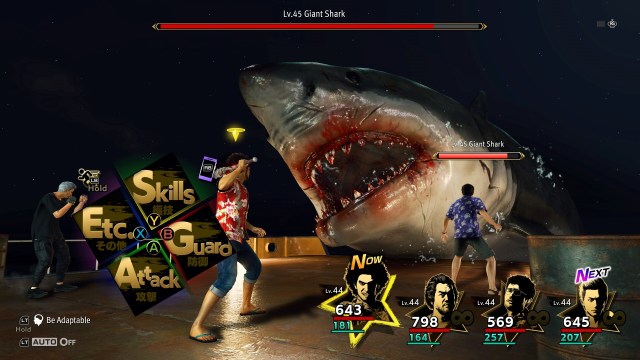
Like its predecessor, Infinite Wealth dispenses with the series’ traditional street brawling in favor of a slightly more cerebral turn-based system, explained in-universe as Ichiban playing too much Dragon Quest in his youth (so be careful, JRPG fans). This time round, combat is improved across the board and infinitely less stiff. The ability to move within a set circular range rather than being rooted in place when it’s your turn is a genuine revelation, and when combined with contextual environmental elements like improvised weapons and ledges, it becomes far more dynamic than the likes of Persona. Knocking an enemy out with a perfectly-timed button press to their vulnerable back is supremely satisfying, as Paper Mario-style action prompts ensure you can’t just sit back and mash A to win.
I’d also be remiss if I didn’t mention the array of jobs on offer, allowing Ichiban and company to roleplay as everything from sharpshooting cowboys to chill surfer dudes to Bruce Lee. Finding the ideal mix of jobs for your party is almost a game in itself, whether you want to go for tight optimization or the humor of having four bucket hat-toting breakdancers on your side. Either way, all the new jobs pay homage to Hawaiian (or more general American) culture beautifully—fitting, given how much emphasis is placed on the new setting.
A slice of paradise

This is the first time the Like a Dragon series has ever stepped out of Japan’s borders, and after seeing RGG Studio’s best-in-class world design applied to the United States, I can only wonder why it didn’t happen sooner. Honolulu is lovingly, meticulously recreated here—it’s certainly the biggest map the series has ever seen, but even more impressively, it’s also the most immersive. Diverse background NPCs chatter in English as you weave through the tourist-packed streets, ducking into high-end boutiques (often featuring real-world Hawaiian brands) and seedy back alleys mere steps away from each other. That glittering, crystal-blue sea isn’t just for decoration—you and your party can dive in headfirst, trawling for treasure and getting into trouble on the waves.
Nothing in Infinite Wealth is just for decoration. The series is known for its side content, and the new city seems to have been used as an excuse to stuff this entry fuller than ever. Around every corner lies a new activity, a stranger in need of help, or a menacing boss encounter. In my 50 hours with the game, I coached my pet crawfish through an aquatic romance, starred in a reality TV show, opened my own Animal Crossing-style island resort, captured people off the street to fight in legally distinct Pokémon battles, helped Kiryu reconnect with old friends not seen in years, and still felt like I was barely even scratching the surface. This is a world you can get lost in if you’re not careful, perfectly capturing the spirit of endless possibility that comes with any good vacation.
It’s been said before about previous titles, but Infinite Wealth feels like the ultimate Like a Dragon game. It’s bigger in every way: bigger world, bigger stakes, bigger bads to take down, but not once does it let that immense size compromise its uplifting vision. The infinite wealth Ichiban and his comrades share isn’t money; it’s each other. It’s the bonds they form, the memories they make, and their willingness to tackle life head-on and make an adventure out of every day. If you’re looking to discover that in yourself—or to sink your teeth into a massive, dazzling playground—Like a Dragon: Infinite Wealth is a vacation worth taking.
- Beautiful, interactive world
- Innovative RPG combat is visceral and satisfying
- Emotional story with plenty of twists and turns
- Lukewarm last-minute plot twist
- Intimidating runtime


